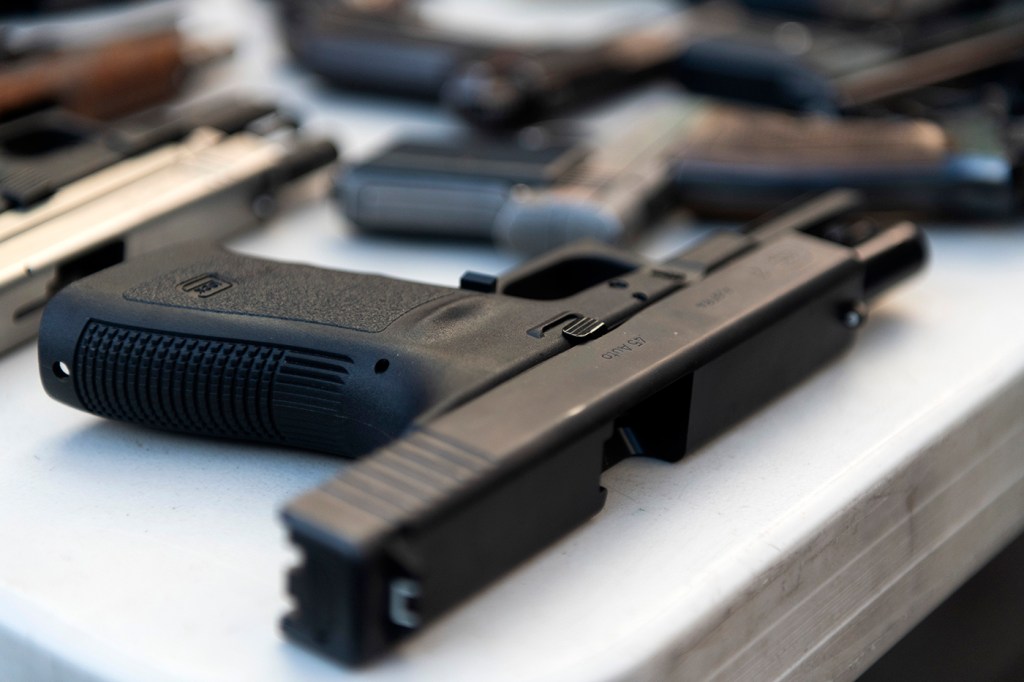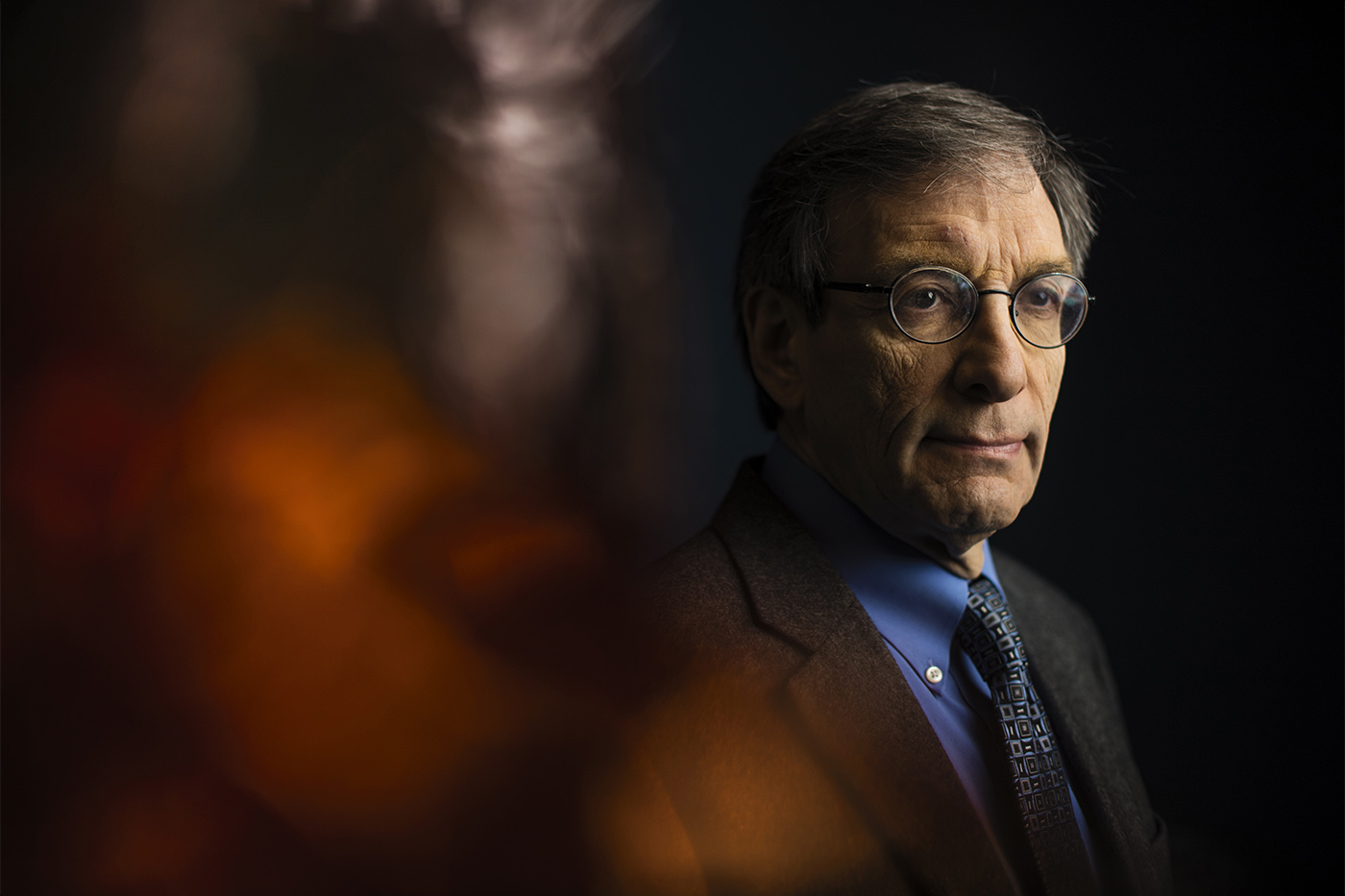Is the new Texas gun law based on a misconception about mass shootings?

A new law that will enable people in Texas who are 21 or older to carry a handgun without a permit and background check could backfire, says James Alan Fox, a criminologist at Northeastern and one of the nation’s leading researchers on mass murder.
The rationale that is driving the movement to loosen restrictions is based largely on a misconception about gun violence, Fox adds.
A desire for self-defense during mass shootings is often cited as a reason for allowing people to carry guns. But Fox notes that mass shootings account for fewer than 2 percent of firearm- related casualties in the United States. More than 43,000 people in the U.S. were killed by guns in 2020, of whom 513 were victims of mass shootings.

James Alan Fox is the Lipman Family professor of criminology, law, and public policy in the College of Social Sciences and Humanities at Northeastern. Photo by Adam Glanzman/Northeastern University
Fox says that increased gun controls would likely have little effect on mass shootings.
“The mass shooters generally are deliberate, determined, and will find a way to get a gun no matter what we put in their path,” Fox says. “Now, should we make it more difficult? Yes. But those policies that are proposed in the wake of mass shootings would have the greatest effect on the type of ordinary gun violence we have every day.”
Fox traces the trend in Texas to a 1991 mass shooting at a restaurant in Killeen, Texas, where the 23 murder victims included the parents of Suzanna Gratia Hupp, who was 32 at that time. When the assailant opened fire, she instinctively reached into her purse for her .38-caliber Smith & Wesson, only to realize she had left it in her car out of respect for state law that prohibited her from carrying a gun. Hupp went on to advocate for the right to carry guns during her five terms in the Texas House of Representatives and wrote two books, including, Thank God I Had a Gun: True Accounts of Self-Defense.
Texas will become the 20th—and largest—state to dispense with a license, background check, and training for people who carry handguns. Other states with similar laws tend to be more rural, whereas Texas has three of the nation’s 10 largest cities in Houston, San Antonio, and Dallas.
Fox says the easing of gun-carrying laws in densely populated areas creates new concerns.
“The level of crime is quite different in Texas than it is in Wyoming,” says Fox, the Lipman Family professor of criminology, law, and public policy at Northeastern. “In states like Wyoming, there are lots of guns for hunting purposes. In Texas, it’s a whole different type of mentality: It’s person against person, as opposed to person against animal.”
Eddie Garcia, the Dallas police chief, leads a group of Texas law enforcement leaders who oppose the elimination of requirements for people who carry a handgun—including a fingerprinted background check, four to six hours of classroom or online training, a written test, and a shooting safety and proficiency test.
More than 1 million people in Texas already have permits to carry handguns.
“A minimum level of training is not asking too much for carrying a firearm and it is consistent with the Second Amendment,” Garcia said at a news conference Tuesday at the state capital in Austin.
Texas Gov. Greg Abbott has said he will sign the new provision, which will take effect in September. It is “the strongest bill I’ve seen in my legislative career regarding the rights of our Second Amendment,” said Charles Schwertner, a Texas state senator who sponsored the proposal.
Gun rights activists are driven in part by a philosophy of self-defense, says Fox.
“They want to protect themselves,” Fox says. “Not only do they feel the Second Amendment [gives them the] right to do so, but they object to government interference with their ability to protect themselves, not just in their home but also out in the street.”
Enabling guns to be carried by people who have not been trained is a safety issue that is bipartisan, said Doug Griffith of the Houston Police Officers’ Union.
“It makes our job, the job of our men and women, more dangerous,” said Garcia, the Dallas police chief. “Gun owners have a duty to ensure that their firearms are handled safely and a duty to know applicable laws. The licensing process is the best way to make sure this message is conveyed.”
Fox says that gun owners cannot be expected to respond appropriately and aim accurately to protect themselves during mass shooting incidents. He points to the ongoing national debate over policing based on judgments made by officers who have been trained to use guns in volatile settings—and who are still accused of making the wrong decisions.
When multiple shooters are involved, says Fox, “it’s kind of hard to figure out who the bad guy is versus the good guy. It’s not like they wear different colored uniforms.”
For media inquiries, please contact Shannon Nargi at s.nargi@northeastern.edu or 617-373-5718.






